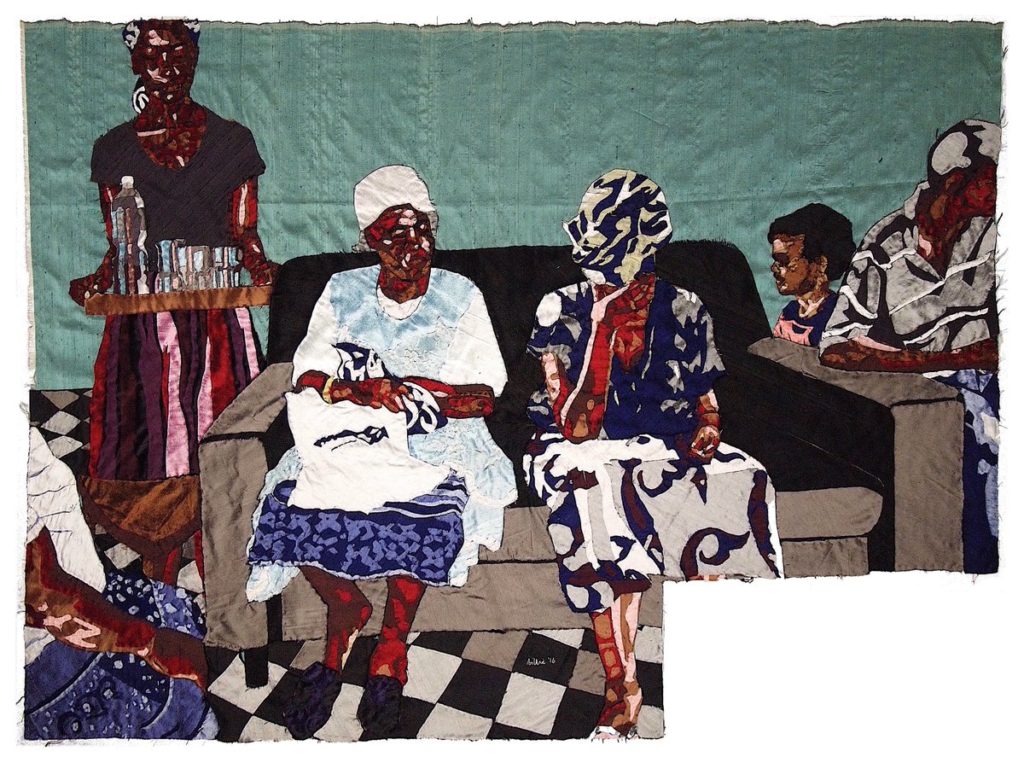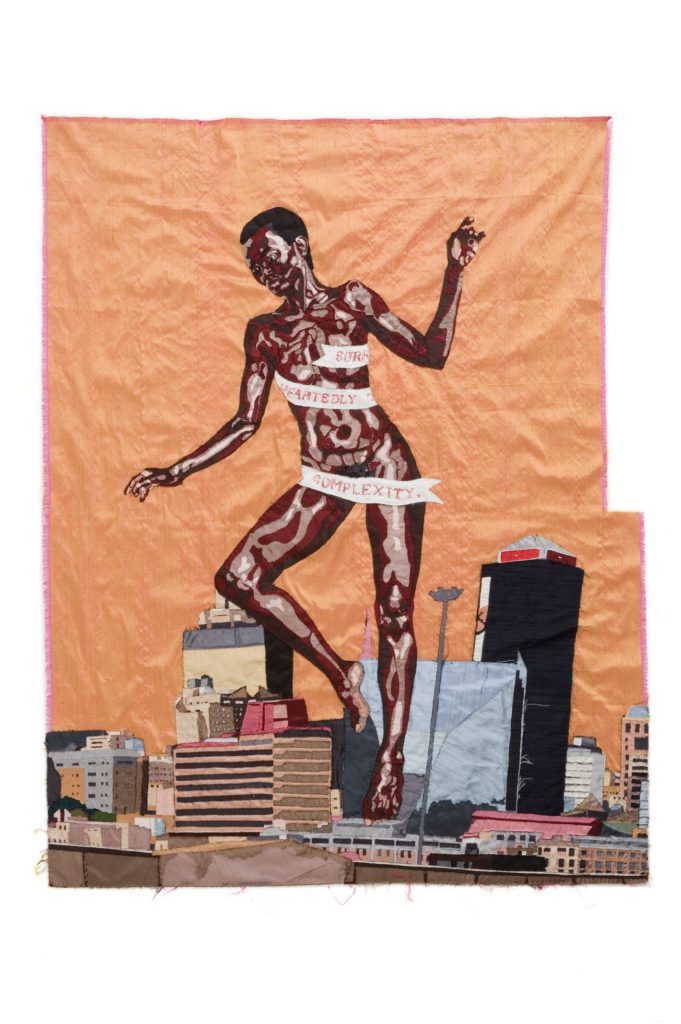Billie Zangewa
Billie Zangewa, born in Malawi 1973, now based in South Africa, is an artist who is known for her intricate needlework and using silk to create collages of domestic environments and urban landscapes, aiming to capture moments of every day life that most of us pay little attention to. The artist has claimed that she is drawn to this medium of textiles as the sensory experience of touch creates a bridge between the viewer and the external world. In addition, Zangewa states that she creates artwork through the medium of textiles as “Fabric, this thing we all have a daily relationship with, is often dismissed by the world as mundane and unimportant, much like the daily, mundane work that women do to keep a home”. With this, the artist’s aim is to foreground the lives of black women in a patriarchal society that predominantly marginalises them. Calling this ‘daily feminism’, Zangewa attempts to present this message through her personal experience in this oppressed position and places herself as the protagonist in most of her pieces.
Analysis

This collage created by Billie Zangewa, displays what appears to be a scene of a mother walking her child to school. This is in fact a recreation of Zangewa herself and her son, as she walks him to school through a what seems like a rural setting. Here leading lines are created through the tree trunks, leaves and stems of plants, which all appear to be curving around and towards the focal point of the image, Zangewa and her son, leading the viewer’s eyes to move from the edges of the piece inwards. The busiest area of this piece is the right hand side of the embroidery, as it contains Zangewa and her son amongst a densely packed area of plants and nature, with the upper left side of the piece showing empty space. This could be a way of showing the movement of the mother and son, with the weighted right side of the embroidery urging the viewers eye to keep moving along and ahead, much like a mother might have to do with a child. Due to Zangewa”s use of the material silk in her work, the texture of a piece like this appears to be be smooth and almost close to two dimensional, despite the intricate layering of colours and tones needed to create this image.
Zangewa’s choice to name this piece ‘Soldier of love’ may be a way for the artist to express how in society taking care of children is seen as an essential duty, in which a woman can fulfil, to her husband and family. This could cause the same effect of a soldier heading into war, as she is protecting and serving something she loves but is bound by societal restraints that do not allow her to stray from these duties occasionally. Zangewa uses her embroidery talents to escape oppression that she faces as a black women, by the presentation of self love, stating that ‘the ultimate act of resistance is self-love’. The method of hand stitching, sewing and embroidering on the material of dupion silk, acts as another representation for the female experience in her work as Zangewa states. This could be due to the soft, gentile and elegant properties the fabric possesses, which are often linked with the idea of femininity.






